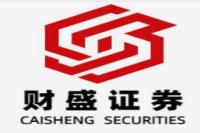Hong Kong's Tech Sector Soars: A Deep Dive into the Market's Recent Surge
Meta Description: Hong Kong's tech sector is on fire, with the Hang Seng Tech Index soaring over 6% and the Hang Seng Index up 3.3%. This article examines the driving forces behind this surge, exploring key factors and implications for investors.
Imagine this: You're scrolling through your news feed when a headline catches your eye - Hong Kong's tech sector is experiencing a massive surge. You might be wondering, "What's going on?", "Is this a temporary blip or a sign of things to come?" This article dives deep into the recent surge in the Hang Seng Tech Index, providing a comprehensive analysis that goes beyond just the headlines. We'll explore the key factors driving this positive momentum, examine the potential implications for investors, and offer insights into the future of the Hong Kong tech landscape. Whether you're a seasoned investor seeking new opportunities or simply curious about the global tech scene, this article will empower you with valuable knowledge and perspectives.
The Hang Seng Tech Index: A Beacon of Growth
The Hang Seng Tech Index, a benchmark for some of Hong Kong's largest and most innovative tech companies, has been making headlines recently with its impressive performance. The index, which tracks the 30 largest tech companies listed on the Hong Kong Stock Exchange, has surged over 6% in a single trading session, reflecting a renewed investor confidence in the region's tech sector. This surge signifies a remarkable shift in sentiment, particularly after a period of relative stagnation.
Driving Forces Behind the Surge
Several key factors are contributing to the recent surge in the Hang Seng Tech Index:
1. Easing Regulatory Pressures: The tech sector in Hong Kong has been under scrutiny in recent years, facing regulatory challenges that impacted investor sentiment. However, recent indications suggest a more accommodative regulatory environment, with authorities focusing on fostering innovation and growth. This shift in approach has boosted investor confidence, leading to a surge in investment in tech companies.
2. Strong Economic Fundamentals: The Hong Kong economy is experiencing a period of strong growth, driven by a robust recovery from the pandemic and increased demand for goods and services. This positive economic environment is creating a favorable backdrop for tech companies to thrive, as they capitalize on the growing demand for their products and services.
3. Emerging Technologies and Innovation: Hong Kong's tech sector is known for its innovation and is actively developing cutting-edge technologies in areas such as artificial intelligence, fintech, and cloud computing. These emerging technologies are attracting significant investment and creating new opportunities for growth.
4. Increased Mainland China Investment: Mainland China's growing economic clout and its increasing investments in Hong Kong's tech sector are providing a crucial boost to the market. Chinese investors are recognizing the potential of Hong Kong's tech companies and are actively seeking opportunities to invest in their growth.
Implications for Investors
The recent surge in the Hang Seng Tech Index presents both opportunities and challenges for investors:
Opportunities:
- Potential for High Returns: The tech sector is known for its high growth potential, and the recent surge suggests that investors are expecting continued growth in the future.
- Diversification: Investing in Hong Kong's tech sector can provide investors with a valuable diversification strategy, reducing their overall portfolio risk.
- Exposure to Emerging Technologies: Investing in Hong Kong's tech sector provides investors with exposure to innovative companies at the forefront of emerging technologies, offering the potential for significant future growth.
Challenges:
- Volatility: The tech sector is known for its volatility, and investors should be prepared for potential price fluctuations.
- Valuation: The recent surge in the Hang Seng Tech Index has led to higher valuations for many companies. Investors should carefully evaluate the valuations of potential investments to ensure they are justified by the company's performance and future prospects.
- Regulatory Uncertainty: While the regulatory environment seems to be improving, there is still some uncertainty surrounding future regulations, which could impact the market.
The Future of Hong Kong's Tech Sector
The recent surge in the Hang Seng Tech Index suggests that Hong Kong's tech sector is poised for continued growth. The region's strong economic fundamentals, innovative tech companies, and increasing investment from mainland China create a positive environment for the sector to thrive. However, investors should be mindful of the potential risks and challenges, such as market volatility and regulatory uncertainty. By carefully evaluating opportunities and managing risks, investors can capitalize on the growth potential of Hong Kong's tech sector.
Key Takeaways
- Hong Kong's tech sector is experiencing a surge driven by easing regulatory pressures, strong economic fundamentals, emerging technologies, and increased mainland China investment.
- Investors can find opportunities for high returns, diversification, and exposure to emerging technologies in the Hong Kong tech sector.
- However, it's crucial to be aware of potential challenges such as volatility, high valuations, and regulatory uncertainties.
- The future of the Hong Kong tech sector looks bright, with continued growth expected in the coming years.
Frequently Asked Questions (FAQs)
Q1. What are the major companies listed on the Hang Seng Tech Index?
A1. The Hang Seng Tech Index includes some of Hong Kong's most prominent tech companies, such as:
- Tencent Holdings: A leading internet and technology conglomerate with a wide range of services, including social media, gaming, and cloud computing.
- Alibaba: A Chinese e-commerce giant, operating a vast online marketplace, cloud computing services, and digital payments.
- Meituan: A Chinese e-commerce platform, offering online food delivery, ride-hailing, and other services.
- JD.com: A Chinese e-commerce company focusing on retail, logistics, and cloud computing.
- Xiaomi: A global electronics manufacturer known for its smartphones, smart home devices, and other consumer electronics.
Q2. What kind of investments are driving the surge in the Hang Seng Tech Index?
A2. The surge is fueled by a combination of investments, including:
- Individual Investors: Retail investors are increasingly drawn to the tech sector, seeking high returns on their investments.
- Institutional Investors: Pension funds, hedge funds, and other institutional investors are allocating a larger portion of their portfolios to tech stocks.
- Venture Capital: Venture capital firms are actively seeking out promising tech startups in Hong Kong, providing capital for growth and innovation.
- Mainland China Investment: Direct investments from Chinese companies and investors are playing a significant role in driving the growth of the Hong Kong tech sector.
Q3. What are the potential risks associated with investing in the Hang Seng Tech Index?
A3. While the Hang Seng Tech Index offers significant growth potential, it's crucial to acknowledge the associated risks:
- Market Volatility: The tech sector is known for its volatility, and prices can fluctuate rapidly based on market sentiment and news events.
- Valuation Risk: Many tech companies are trading at high valuations, and any decline in growth or profitability could lead to significant price drops.
- Regulatory Uncertainty: Changes in regulations can impact the tech sector and create uncertainty for investors.
Q4. What are some strategies for mitigating risks associated with investing in the Hang Seng Tech Index?
A4. Here are some strategies to help manage risk:
- Diversification: Diversifying your investment portfolio across different sectors and asset classes can reduce overall risk.
- Long-Term Perspective: Investing in the Hang Seng Tech Index should be a long-term strategy, as短期市场波动不会影响公司长期增长潜力。
- Due Diligence: Thoroughly research each company you invest in, analyzing its business model, financial performance, and future prospects.
Q5. Is it a good time to invest in Hong Kong's tech sector?
A5. Whether it's a good time to invest depends on your individual risk tolerance and financial goals. The recent surge in the Hang Seng Tech Index indicates positive sentiment and growth potential, but you should consider the potential risks and challenges before making any investment decisions.
Q6. What are some potential future trends in Hong Kong's tech sector?
A6. Hong Kong's tech sector is expected to continue to grow and evolve in the coming years, driven by several trends:
- Artificial Intelligence (AI): AI is expected to play a significant role in driving innovation across industries, with Hong Kong companies at the forefront of AI development.
- Fintech: Hong Kong is positioning itself as a leading fintech hub, with growing adoption of blockchain technology, digital payments, and other innovative financial services.
- Cloud Computing: The cloud computing market is expected to continue to grow rapidly, with Hong Kong companies offering competitive cloud services.
- E-commerce: The rise of e-commerce is transforming the retail landscape, creating opportunities for Hong Kong companies to expand their online presence and reach new customers.
Conclusion
The recent surge in the Hang Seng Tech Index is a positive sign for Hong Kong's tech sector, indicating strong growth potential and investor confidence. While opportunities abound, investors should be aware of potential risks and challenges. By carefully evaluating investments, managing risk effectively, and adopting a long-term perspective, investors can potentially benefit from the continued growth of Hong Kong's tech sector. As the tech landscape continues to evolve, Hong Kong is well-positioned to remain a leading global hub for innovation and technological advancement.



